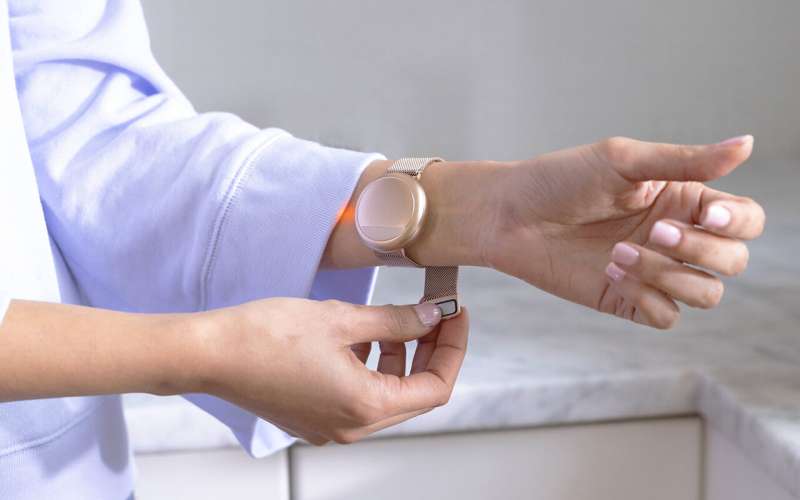In the U.S. alone, an estimated 1.3 million women transition into menopause annually, and 80% of women experience hot flashes—sudden feelings of intense heat, often radiating in the upper body. Most hot flashes occur during this transition, but half of women experience them for 7 years or more. The physiological response had, for decades, been considered more of a nuisance than a treatable condition by medical professionals. However, recent research has linked hot flash severity and related sleep disturbances to risk of cardiovascular disease.
“Hot flashes have been dramatically overlooked,” says Matt Smith, co-founder and CTO of Embr Labs. “Even 50 years ago, hot flashes were still considered to be psychosomatic. To our knowledge, our work is the first attempt to undertake a rigorous effort to achieve the prediction of hot flashes. This breakthrough discovery and the publication of our findings are the result of incredibly deep data science that answers the question: ‘Is it possible to accurately predict a hot flash before a woman feels it?'”

